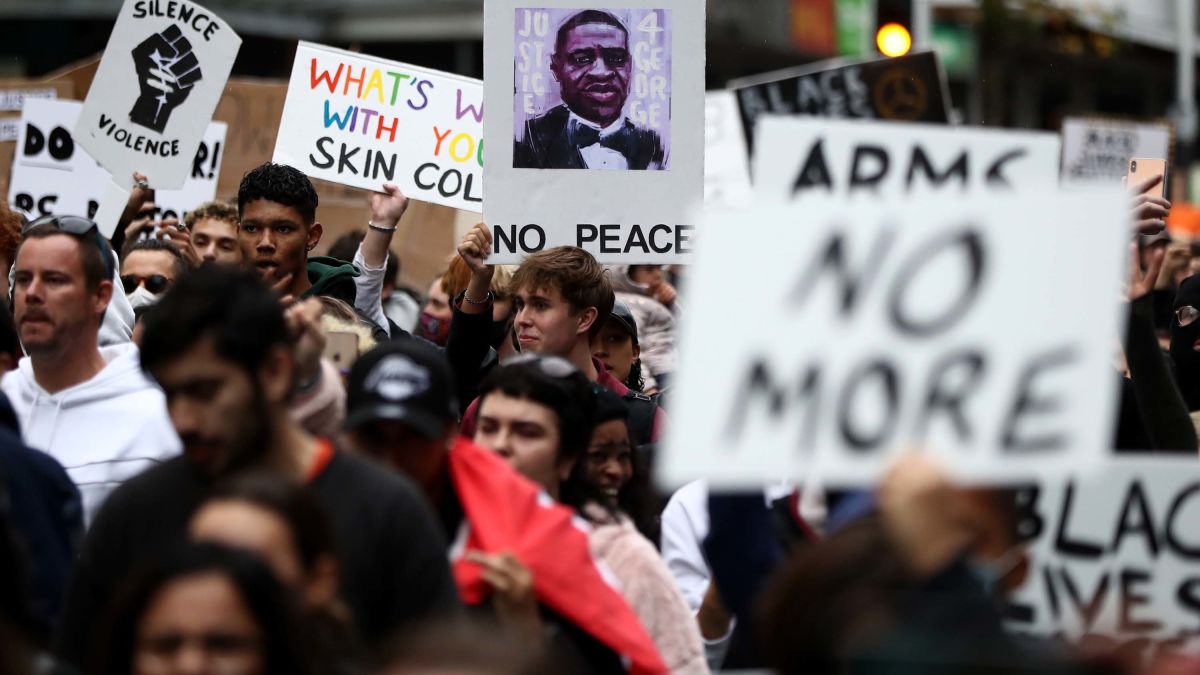Lauren McCain
lm176817@ohio.edu
America's melting pot is churning. Journalists are attempting to cover it.
In the wake of the nationwide rise in Black Lives Matter protests after the murder of George Floyd, American journalists have been grappling with the ethics of staying objective in their reporting on racial topics.
In reporting, objectivity is law. A green journalist is taught that their job is to gather, interpret, and report. They reject sensationalism and loaded word choice, no opinion - as a journalist you are simply a conductor for information to flow through. But who exactly is dictating the standards in being "objective" in today's society?
Journalists of color have often been targeted in accusations of implicit bias in reporting when they push to label blatantly racist actions as such, especially when their words are targeting a white person in power. Critics argue that the purpose of a journalist is to gather information and report it to the people, not to assign labels; they believe that should be up to the interpretation of the reader to assign their own. But does objectivity cross the line when it contributes to a larger problem of normalized race-baiting and discrimination in our society?
 |
| George Floyd protests, image courtesy of CNN.com |
"Why don't they go back and help fix the totally broken and crime-infested places from which they came," said Trump in one of several tweets in 2019, seemly referring to a prominent group of four congresswomen of color: Rashida Tlaib of Michigan, Ilhan Omar from Minnesota, Alexandra Ocasio-Cortez of New York and Ayanna Pressley of Massachusetts.
Reporting purists could argue that the decision made by NPR and the New York Times violated their codes of objectivity in reporting, but what does this mean, really? Journalists can use the labels "racially charged" or "racially insensitive" until they're blue in the face, but the word that is being danced around is already clear to most: racist. And while it may not be a journalist's job to assign labels, it is a journalist's job to relay real and inform the public of what is going on in the world.
Should it be a journalist's job to jump through word-choice hoops to keep up a facade of objectivity, or should they instead be encouraging conversations on racial reporting and ditching the word-dancing habit?
As the United States continues in its systemic racial turmoil, it is worth asking if the idea of 'objectivity' in reporting works harder to excuse and conceal our country's racism rather than bringing attention to it. If the objective roots of fair reporting are only working to benefit one majority, it could be an indication that it is time to reevaluate our journalistic standards as a country.
Incredible post, Lauren! While I understand that objectivity is one of the foremost goals of our roles as journalists, I think it is incredibly narrow-minded to think that we will not bring any kind of bias into our reporting. And, I think we need to be even more aware that this bias is part of the reason we even see the need to dance around the word "racist." Also, I really loved the point you made about objectivity working harder to excuse and conceal our country's racism rather than calling attention to it-- and I definitely agree with that!
ReplyDelete